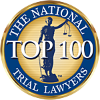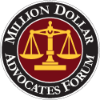Grant Fraud Lawyers
Whistleblowers help the government recoup funds lost to grant fraud.
Whistleblowers help the government recoup funds lost to grant fraud.
The federal government awards tens of billions of dollars each year in research and development (R&D) grants. Recipients include universities, nonprofit research institutions, and local government agencies. While most of these entities are honest and provide the American people with crucial information and technology, others obtain grant money based on false data and false statements about research conditions.
A whistleblower, typically a researcher or other employee of the research institution, can help the government recover money from an ill-gotten grant, which ultimately benefits American taxpayers and citizens. The federal False Claims Act provides for potentially significant financial rewards to whistleblowers who follow the right steps in reporting fraud and help in successful litigation.
While the term “fraud” technically applies to a relatively narrow range of illegal activities, we use the term “grant fraud” here to refer to any grant-related activity that violates the federal False Claims Act (FCA) and/or comparable state laws. These laws are violated when the government awards grant money based on false information that a researcher or research institution provides in connection with the grant. This false information may be included on the initial application for the grant, in the publication of research conducted with the grant, or in reports that the grant recipient is required to make as a condition of the grant.
Examples of grant fraud and alleged grant fraud include:
The federal government does not publish estimates of grant fraud losses by agency. However, the Department of Defense (DoD) and the Department of Health and Human Resources (DHHS) are frequent targets. This is partly because their budgets are among the largest for federal agencies and because they rely heavily on the private sector for research.
DoD spends hundreds of billions of dollars on defense contracting each year and distributes tens of billions of dollars annually in research grants. Defense contractors and research institutions alike are frequently named in FCA lawsuits, and frequently settle litigation or face judgments for millions of dollars.1
DHHS may lose several billion dollars each year to Medicare and Medicaid fraud. DHHS also distributes tens of billions of dollars in research grants each year through the National Institutes of Health (NIH) alone. FCA lawsuits frequently target researchers who misrepresent information related to their research.
The Environmental Protection Agency (EPA) is another federal agency that relies on private sector research and sometimes loses money to grant fraud.
Like any person or entity that receives federal funds, a research institution may be subject to FCA liability for a false statement made in connection with a grant. FCA liability can be stiff: In a successful FCA lawsuit, the government’s total recovery typically includes three times the amount of the overcharging or fraud, plus civil penalties for each false claim for payment. Verdicts and settlements involving research institutions can stretch into the seven- and even eight-figure range.1
In successful cases initiated by a “qui tam” whistleblower, the whistleblower is entitled to up to 30% of the government’s recovery, subject to court approval, depending on the extent of the whistleblower’s involvement in the case.
With hundreds of billions in grant money at stake, it can be very difficult to monitor improprieties among recipients who play fast and loose with government funds. That is why the government relies on courageous whistleblowers to try to help stem the rising tide of fraud.
While the federal government recovered $24.8 billion between 2011 and 2020 through FCA lawsuits – including $21.9 billion in lawsuits initiated by whistleblowers – the vast majority of grant fraud is believed to go undetected.1 The federal government is estimated to have made $144 billion in “improper payments” in fiscal 2016 alone. That amount includes payments based on false claims as well as those made on mistakes and for other reasons.
If you suspect fraud against the federal or state government, let’s talk. We are here to help put you at ease as we try to help you determine — confidentially and discreetly — if you should move forward with a whistleblower/qui tam claim. We appreciate the struggle you may be facing. That is why we have a You-First policy in place. We will try to help protect you regardless of your involvement.
Contact us or call 1-888-292-8852.
If we decide to take your case and you don’t get a reward for reporting fraud, you owe us no fee.2
“Bill has the ability to ‘think outside the box’…which makes him extremely effective as an advocate for his clients.” 1 — Attorney who previously worked with Bill





If you’re wondering if it’s a good idea to speak with a whistleblower lawyer about what you know, let us set the record straight.
"*" indicates required fields